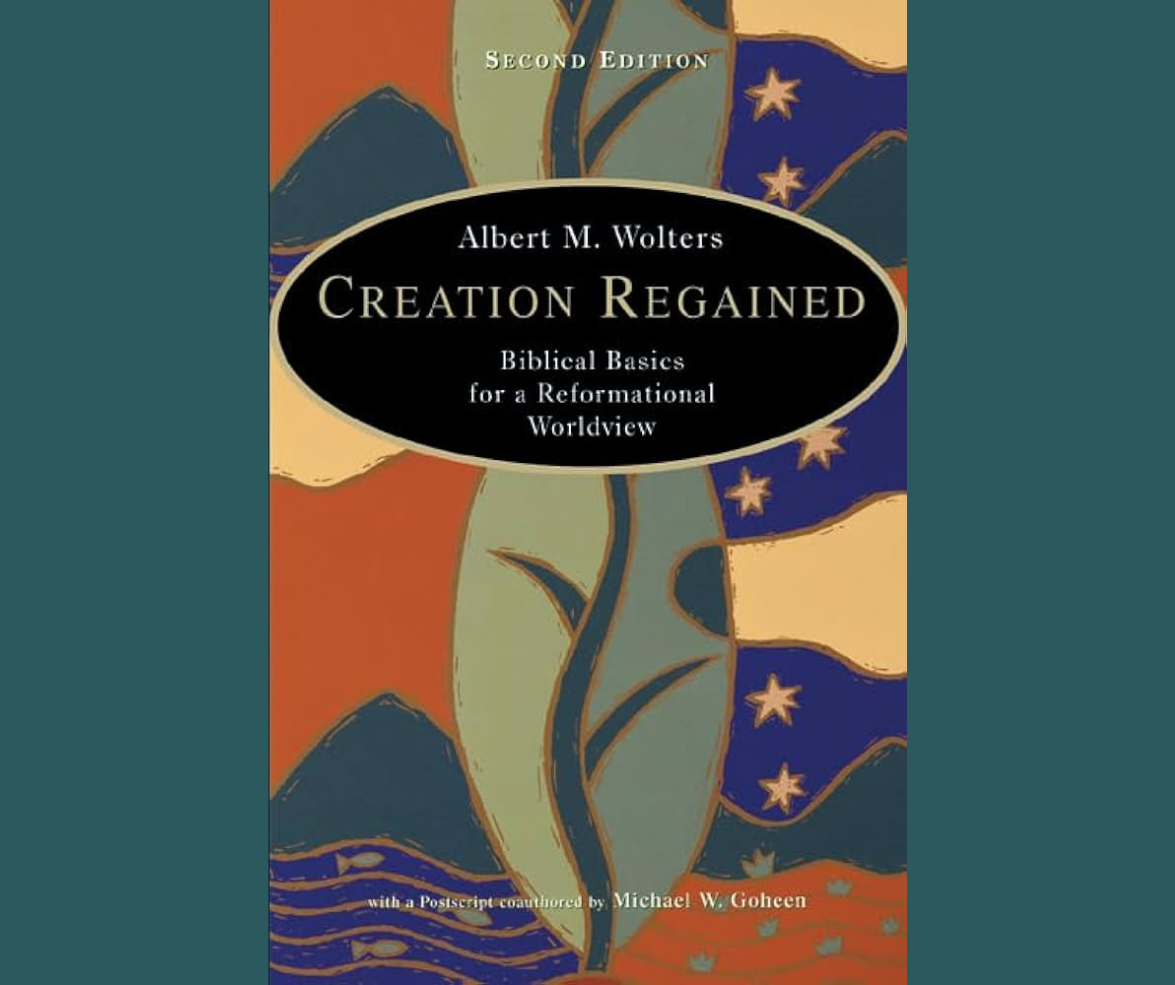
Creation Regained is small but meaty book offering a biblical basis for a reformational worldview. Albert Wolters wants his readers to take the Bible seriously in all areas of life and reality, and outlines the cosmic scope of creation, fall and redemption before giving practical implications of this for the Christian life. Read this review for more about why Creation Regained is worth reading as a science student.
There are 5 chapters but, as they are not similar in length, this study guide breaks the book down into 5 more equal sections. You could use these questions to shape your conversation as you read along with a friend, or as part of a Science Network Hub.
Section 1: Getting Started: Worldview and the Scope of Creation
Read: Chapter 1 and 2a (to heading 'The Revelation of Creation')
1. Do you think that everyone has a worldview? Why/why not?
2. ‘The question is what constitutes the overriding and decisive factor in accounting for the pattern of human action.’
Would you say that belief is a decisive factor, compared to class interests, our emotional lives, or environmental factors? Why?
3. What is Scripture instruction for?
4. ‘There is nothing in human life that does not belong to the created order. Everything we are and do is thoroughly creaturely.’
What non-physical things are also part of creation? How does this broadened scope of creation change your thinking?
5. How could this change the way you speak of the Creator God with your coursemates?
Section 2: Knowability, Development and Goodness: How we view Creation
Read: Chapter 2b ('The Revelation of Creation' to end)
1. How does creation reveal God to us?
2. Is conscience distinct from spiritual discernment? Why/why not?
3. ‘The fundamental knowability of the creation order is the basis of all human understanding, both in science and everyday life.’
Do you agree? What would your coursemates think of this? How could this understanding help you speak about Jesus in all of life?
4. ‘If we see that human history and the unfolding of culture and society are integral to creation and it’s development… then we will be much more open to the positive possibilities for service to God in such areas as politics and the film arts, computer technology and business administration, developmental economics and skydiving.’
Creation is not static, but is full of potential for development. If the Bible begins with a garden and ends with a garden-city, how does this affect your attitude towards your degree, or your view of courses that are really different from yours?
5. Where are you most tempted to blame some aspect of creation for sin and it’s consequences, rather than examining your own heart?
Section 3: Scope of the Fall: Introducing Structure and Direction
Read: Chapter 3
1. ‘The structure of all the creational givens persists despite their directional perversion.’
What structures do you notice in your everyday life? In your course? Why is this good?
2. ‘The Bible is unique in it’s uncompromising rejection of all attempts to confuse structure and direction.’
Can you think of examples where structure and direction converge? Do you agree that the Bible unique here?
3. How could distinguishing between structure and direction help you to speak of the hope you have, while not sugar-coating reality?
4. Where do you see your life as sacred vs. secular? What is the danger of this dualistic view and how does this chapter challenge you?
5. ‘The link between evil and enslavement is very foreign to the modern mind… yet this association is obvious in the Scriptures.’
What do you make of this?
Section 4: Restoration: How we view Renewal in the Now and Not Yet
Read: Chapter 4
1. What is your understanding of redemption or restoration? In what ways has this chapter increased your understanding?
2. ‘The servants of the already-come kingdom invest their entire resources for the promotion of the kingdom not-yet-come.’
What resources do you have that could be invested for the kingdom? Could an increased understanding of restoration help you see fresh opportunities?
3. If nothing is excluded from the scope of Christ’s kingship, how does this encourage you in your course?
4. ‘This spiritual warfare hits many bright Christian students hard when they make the transition from high school to university or college… the battle for creation still has its casualties.’
Where do you feel the battle most strongly?
5. ‘Everywhere humanity’s sinfulness
Where do you need to be reminded that Jesus has won the victory?
Section 5: Thinking about our Context: Theory in Practice
Read: Chapter 5 and Conclusion
1. What do you think of when you hear ‘sanctification’? How does this chapter broaden your view?
2. The renewing power of salvation in Christ Jesus is permeating and total! How does this lead you to praise God? You could take some time to praise and worship Him together now.
3. Wolters talks about revolution and quiet conservatism, but says that renewal is neither of these! Which are you prone to swing towards?
4. How do we stop ourselves from either cultivating a saviour-complex, or withdrawing from all social participation? What truth do we need to hold onto?
5. Where might God be calling you to play a part in societal renewal? In your personal renewal? How could you pray into this and what could be your next step?

